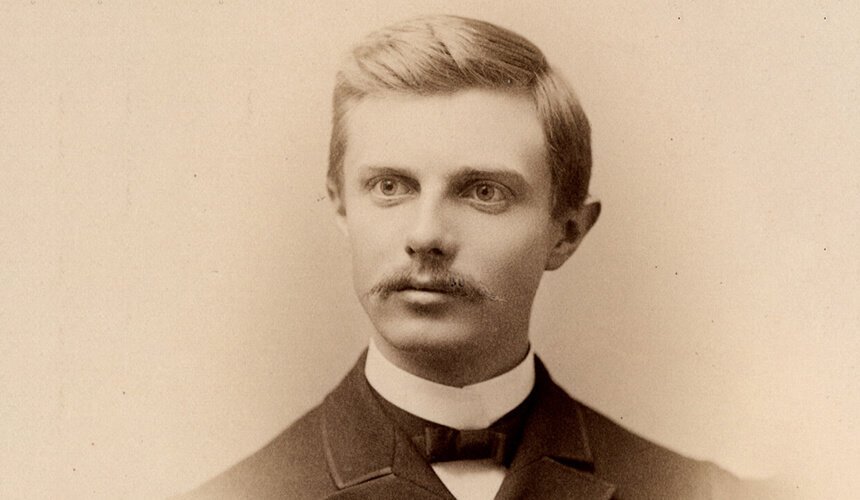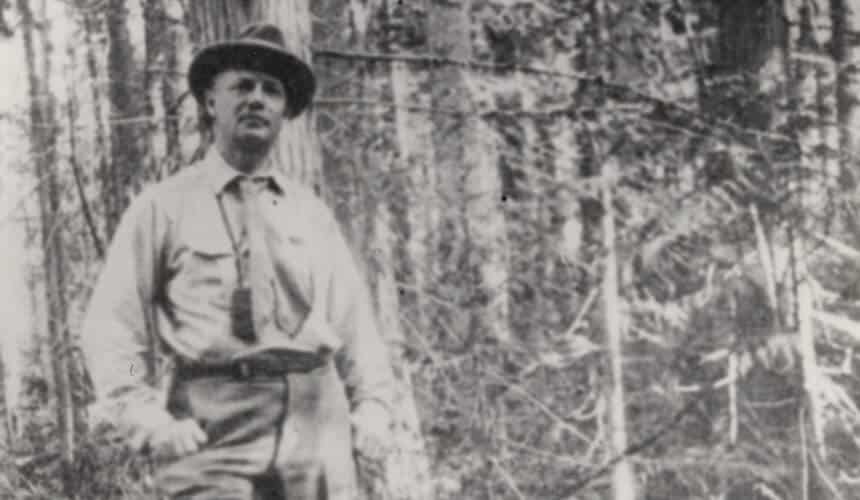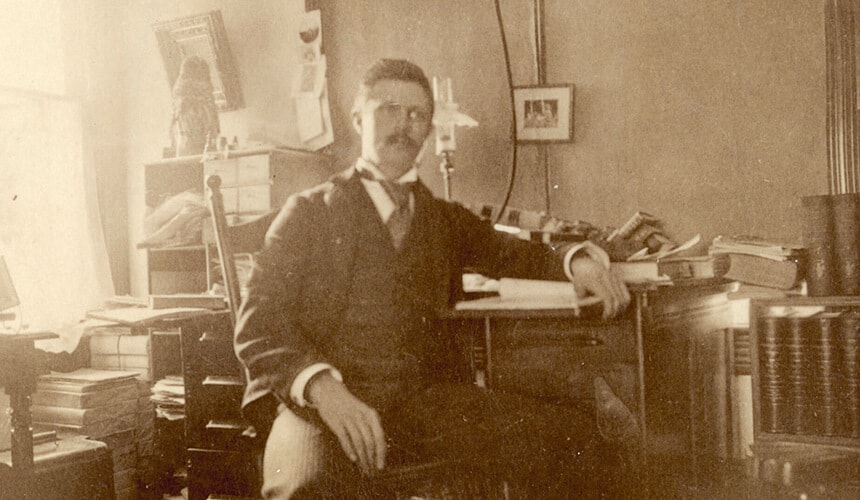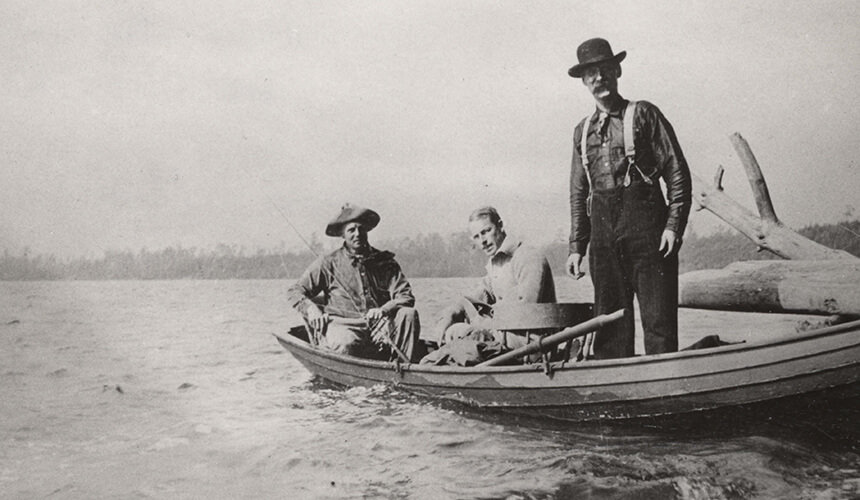Frederick Jackson Turner
Father of the Frontier Thesis
The man who advanced the idea that moving westward shaped America’s very character was himself a pioneer.
While Frederick Jackson Turner BA 1884, MA 1888’s Frontier Thesis has been roundly debated since he first shared it in 1893, no one argues his place in influencing how historians do their work, the role of history, and how history is taught to this day.

Turner believed that the qualities needed to forge ahead into the young country’s uncharted territory — that pioneers must be inquisitive, inventive, restless, and freedom-loving — were what made Americans uniquely American. “The most significant thing about the American frontier is that it lies at the hither edge of free land,” he wrote in his most famous essay, “The Significance of the Frontier in American History.”
That essay, said William Cronon BA 1976, the UW’s Frederick Jackson Turner Professor of History, “is arguably the most influential essay that an American historian has ever written.”
From The Park
“American democracy was born of no theorist’s dream; it was not carried in the Susan Constantto Virginia, nor in the Mayflower to Plymouth. It came out of the American forest, and it gained new strength each time it touched a new frontier.” — Frederick Jackson Turner, The Significance of the Frontier in American History
To symbolize the Frontier Thesis, the medallion in Alumni Park shows a Conestoga wagon, the emblematic “Prairie schooner” that carried so many settlers during America’s 19th century western expansion.
Wisconsin born and educated, Turner conveyed his theory after analyzing the 1890 census and pouring over the maps he loved. In time, Turner’s theories were assaulted, with scholars accusing him of giving too much weight to the frontier, ignoring equally important influences ranging from slavery to capitalism, and downplaying the role of race, gender, and class. Today historians have agreed to disagree, taking the position that the frontier is but one important force in the formation of America. Besides, noted Cronon, “For all the criticism his successors have directed toward his work, no new synthetic paradigm for western history has yet emerged to replace Turner’s.”
Although he didn’t publish much — Turner was “more a doer of a history than a writer of history,” Cronon said — one of his two books won a posthumous Pulitzer Prize for history.
After teaching at Wisconsin for more than a decade, Turner moved on to the faculty at Harvard — a decision mourned by students and alumni alike. Marking Turner’s departure, distinguished historian Carl Becker BL1896, PhD 1907 wrote in the Wisconsin Alumni Magazine, “He has proven himself a most useful citizen: the realization of ideals that have never been provincial, still less bounded by the limits of his state, has helped to make that state prominent in the nation.”
 48° F
48° F


